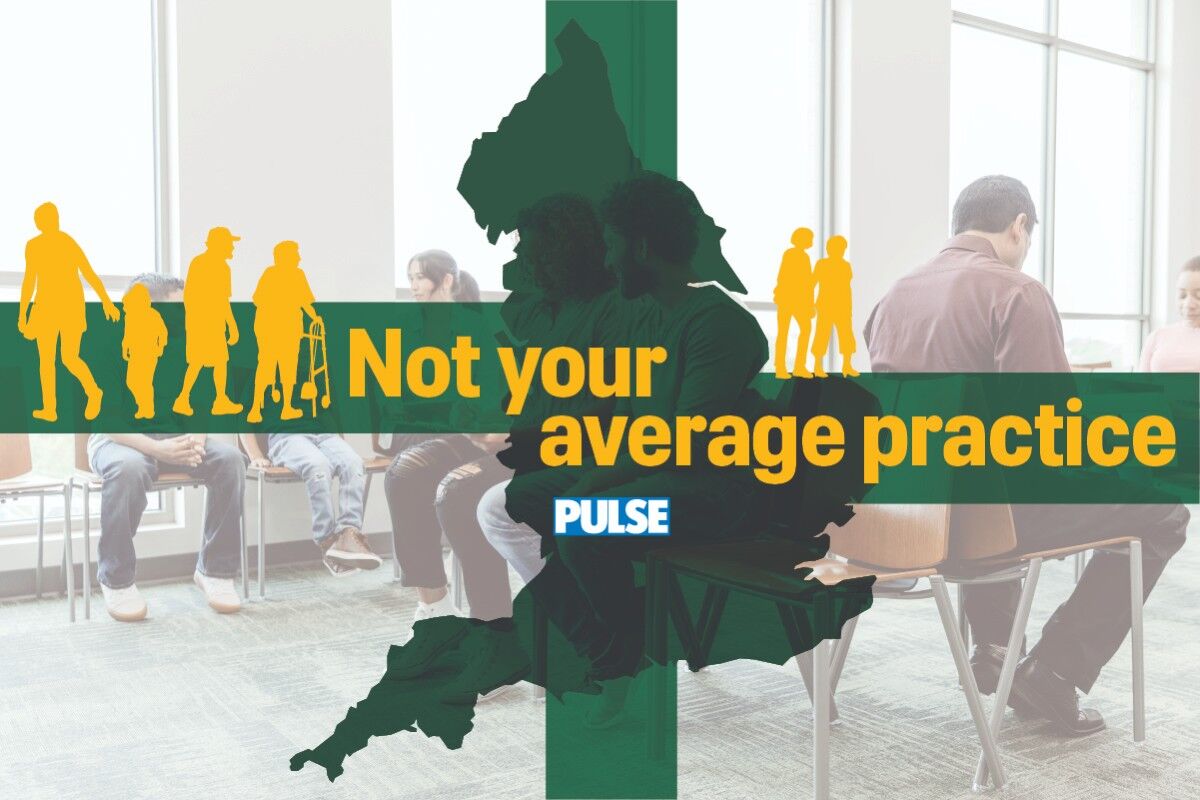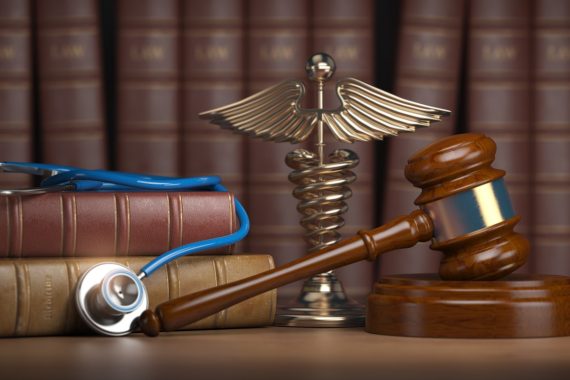The expansion of advice and guidance over recent years has brought with it increasing uncertainty about clinical responsibility and medicolegal risk for GPs acting on specialist advice. NHS England has sought to clarify these issues in new guidance – Eliza Parr examines what this means for GPs
In September, news of an upcoming outpatients strategy suggested there would be a major expansion of advice and guidance, potentially reducing GPs’ access to direct referrals.
This did not go down well with GPs – the RCGP said in some areas the system is a ‘barrier to artificially protect waiting lists’, while the BMA said it is ‘not a viable solution’.
In Pulse’s recent analysis, one of the key concerns raised was around GPs’ legal liability when using an A&G pathway.
NHS England has since clarified that GPs will not be nationally mandated to do advice and guidance, saying local systems should be left to decide what works best for their region. But concerns about the use of A&G – mandated or not – will remain, especially given NHSE has said its use is ‘expanding rapidly’ due to advances in digital technology.
Yesterday, in response to uncertainties from both GPs and secondary care clinicians, NHSE published guidance clarifying issues around medico-legal risk and clinical responsibility.
The key takeaway is that although A&G may be less familiar to GPs, their responsibilities to protect patient safety remain very similar to when making a referral – for example, acting within their clinical competency and providing all clinically relevant information to the hospital. And while the guidance says legal liability is not always clear cut, there are some helpful clarifications for GPs to refer to if encountering problems when using A&G.
The guidance also applies to referral assessment services (RAS), another form of specialist advice whereby specialists review a GP referral and ‘return’ it with guidance if appropriate. GPs have reported concerns about this system, for example in Walsall where RAS is used for MSK conditions and rejected referrals is a ‘daily problem’.
Here, we take a look at what GPs need to know.
Medico-legal
Last year, the Medical Defence Union (MDU) warned that the responsibility for patients ‘remains with the healthcare professional using the A&G service’ unless they decide to refer. But this new NHS England guidance says liability ‘will be determined on a case-by-case basis’, with either the GP or the specialist taking accountability depending on the situation.
For GPs, in order to reduce the risk of liability, it is crucial to provide all relevant clinical information when making an A&G request.
‘If all relevant clinical information is not provided and creates unnecessary delay in patient care or risks patient safety, the accountability is with the referring clinician’s team,’ the new guidance says.
NHS England’s national medical director for primary care Professor Claire Fuller told Pulse this level of accountability is no different to when GPs make regular referrals.
And contrary to the MDU’s warning last year, NHS England has clarified that hospital specialists will have accountability for the advice they give in some cases.
The guidance says: ‘If the providing clinician [specialist] sends advice to a referrer [GP] that is not clinically appropriate, refuses to accept a patient, or creates an unnecessary delay in accepting a referral which risks patient safety, the accountability is with the providing clinician in the Trust.’
So GPs are not solely responsible for medicolegal risk when a patient is on a specialist advice pathway. And importantly, if specialists ‘refuse’ to take on a patient despite a GP’s request, they will be held accountable if something goes wrong.
This may be important in areas where specialist advice leads to an increase in rejected referrals. Such was the case in Nottingham last year, where a new virtual neurology triage system saw GPs fielding rejections for 40% of referrals. And Pulse’s analysis found that the North East and Yorkshire region has consistently had the highest percentage (64%) of A&G requests sent back to GPs, avoiding referral.
Clinical responsibility
While understanding medicolegal risk is crucial for GPs and other doctors, cases where patient safety is compromised are hopefully rare. On the other hand, understanding what GPs are responsible for doing clinically is vital when using A&G on a day-to-day basis.
Drawing on GMC guidance, NHS England makes it clear that GPs should always ‘work within the limits of their competence’ after having received advice from specialists. This means GPs should ‘refuse to undertake the management advice given’ if they feel they would be working beyond this limit.
The GMC’s rules on delegation and referral also highlights the importance of keeping patients informed about who is responsible for their overall care.
NHSE’s guidance says: ‘Clinicians are not accountable to the GMC for the actions or omissions of those to whom they make referrals.
‘However, clinicians referring and those receiving referrals are accountable for their decisions to transfer care, or refusal to accept care of patients and the steps they have taken to make sure patient safety is not compromised.’
In the case of rejected referrals, NHSE says specialists should ‘give clear information’ to the GP ‘explaining’ the rationale. However, GPs are then responsible for communicating this information to the patient and acting on advice, if they agree and believe it is within their competency.
However, the guidance admits that e-RS referral services are not set up to host a ‘two-way dialogue’, so if a GP disagrees with the rejected referral they would need to resubmit it with new information or submit a new one. Given the current pressures of high demand and relentless bureaucracy, this cumbersome mechanism will surely only bog GPs down.
The guidance does however warn against some forms of inappropriate ‘workload dump’. When giving advice, hospital doctors must ensure it is ‘clinically appropriate for delivery’ by GPs. And if an A&G request is ‘converted’ into a referral, NHS England says GPs should not be expected to ‘provide specialist management’ or ‘undertake specialist tests’ for patients waiting for an outpatient appointment.
In May, the primary care recovery plan committed to allowing onward referral from one consultant to another in a bid to avoid workload dump on GPs. However, this has been raised numerous times before with little progress on preventing it. This time round, it was one of several measures aimed at reducing bureaucracy for GP practices, including a pledge for secondary care to issue fit notes.
Turnaround times and resourcing
Another issue GPs have raised around A&G is the time taken for consultants to respond. Even in areas where a specialist advice system has been co-designed with GPs, such as in Tower Hamlets, hospital backlogs mean advice isn’t coming back on time, and patients are left confused about their progress on the pathway.
NHSE’s guidance does not give clear standards on turnaround times, saying that ‘local variables will ultimately dictate the agreed response time’. But it does instruct clinicians to triage requests in a ‘timely fashion’ and recommends the response time is no longer than 10 working days.
To achieve this timeliness, the guidance highlights the importance of resourcing for both ‘providers and referrers’. It goes on to say: ‘A response time of two days will only be attainable when clinicians have appropriate time allocated in job plans that covers every working day.’
But GPs have previously pointed out that they do not have job plans so they can only be resourced via payment specifically for dealing with A&G. NHS England told Pulse that resourcing and capacity in general practice is a ‘much broader conversation’ and is not just about A&G, saying the primary care recovery plan will help to ease demand on practices.
They confirmed that any funding for GP practices to complete advice and guidance is ‘absolutely for local decisions’ rather than for NHS England. Last year, a local system was implemented in Tower Hamlets, where the LMC successfully negotiated with commissioners to be funded £19 per A&G episode in order to deal with the extra workload. But it doesn’t seem as though such systems are common across the country.











We need a A&G and Workload dump Champion to protect us from this nonsense. We are abused by secondary care every day, please someone create a template letter that says that your special- yeast advice is clinically inappropriate and cannot be safely implemented in primary care. Therefore please go and do your work properly. Who’s a good boy?- you are! (That’s motivational part)
Clear as mud, and excuse me but what role does NHS England play in making judgments in matters of medical negligence? Isn’t that the job of the legal people/lawyers etc. so pronouncements/reassurances/clarification from NHS England about where clinical responsibility resides in the use of A&G mean diddly squat. They aren’t the ones who will be judging all this..the law will. And they aren’t the ones who’ll suffer the consequences. Drs will. Last time I looked NHS England don’t write the law. Some of them might think they do..but urrr no they don’t.
Meanwhile stop smoking person has 45 minute appointments and 4 patients in a session. Well being coach has 30 minute appointments, 5 patients in a session with a follow up for every patient. They routinely have cancellations with no attempts to call. There are tasks on multiple occasions from this lot asking for bloods or prescriptions. F*** off.
We’ll find out in the courts. The likely answer is yes in most cases
The GPs will bear full responsibility.
Secondary care will just blame any errors on the GP not providing the right information
We have no protection and insufficient time and resources
It’s a s**t show
Thank goodness I will be able to retire in about 20 years time!